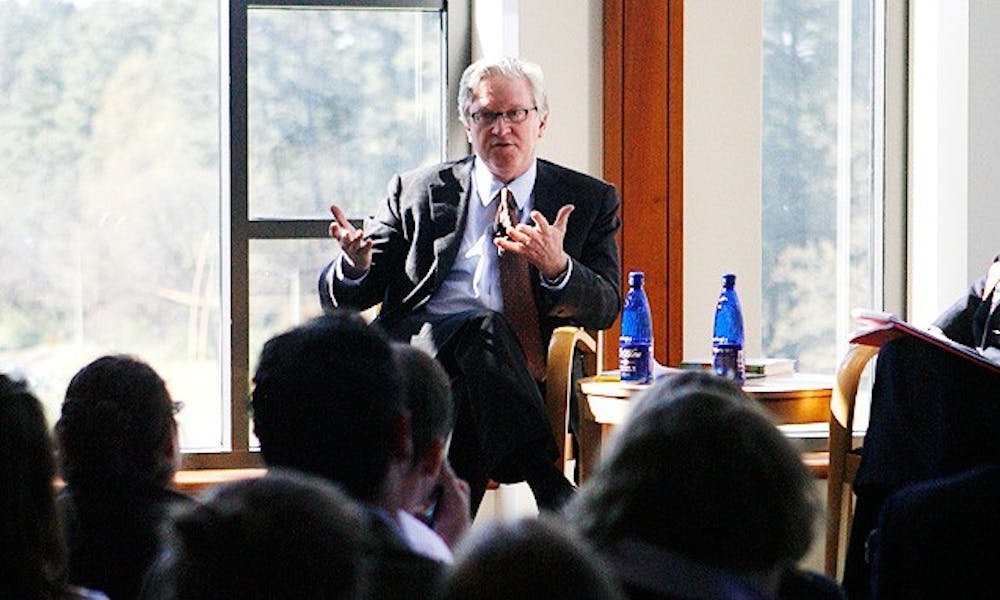Jeff Raikes, CEO of the multibillion dollar Bill and Melinda Gates Foundation, advocates taking risks and innovating when dealing with complex problems—which for the Gates Foundation ranges from educational reform to AIDS prevention.
In a talk Wednesday afternoon in the Sanford School of Public Policy, Raikes spoke about his experience with the complexities of the foundation’s philanthropic work to an audience of approximately 80 people.
“Even if your grants don’t fully succeed, your only failure is if you don’t learn from them,” he said. “I think if we can inject that as a philosophy in the sector, we’ll be better off... otherwise you’ll only do safe grants that won’t solve the problem.”
Raikes, who is the former president of the Microsoft Business Division, also discussed misconceptions about the philanthropy industry. He noted the widespread belief that philanthropies share no similarities with conventional businesses.
“You have to really think of it as a process of continuous learning,” Raikes said. “It’s hard sometimes because you don’t have some of the market signals that you have [in business.]”
He said he has realized he had underestimated the work ahead of him when he became the foundation’s CEO in 2008.
“It wasn’t that they had done anything wrong, but there had been a lot of growth and we needed to deal with that,” Raikes said. “We are kind of an awkward teenager, really. Part of what we have to do [is] develop the muscles that give us the capacity for impact.”
When Edward Skloot, director of the Center for Strategic Philanthropy and Civil Society, which sponsored the speech, asked the CEO whether or not the Gates Foundation had a foreign policy, Raikes said it did not and, as a result, it enjoys the ability to influence foreign governments. For example, he spoke of the foundation’s work in Ethiopia, where the philanthropy influenced public policy in a way that most government-based organizations cannot.
“We’re viewed as more credible than [national] organizations because their organizations have those nationalistic interests that they’re trying to promote,” he said.
Several times during the discussion, Raikes elicited laughter from the audience. At one point he joked that he was primarily at the University because his daughter is considering Duke.
Attendee Chad Harris, a graduate student at the Fuqua School of Business, said he gained a new appreciation at the event for the foundation’s work.
“I learned [that] in order to effect change, there’s a behind-the-scenes process that takes place,” he said.
Manoj Mohanan, an assistant professor of economics and global health, said he respected Raikes’ commitment to the foundation’s grantees.
“I have a couple of research grants from the Gates Foundation,” said Mohanan. “It was nice to know that they’re actually thinking about [grantee relations] as a sticking point.”
Get The Chronicle straight to your inbox
Signup for our weekly newsletter. Cancel at any time.

